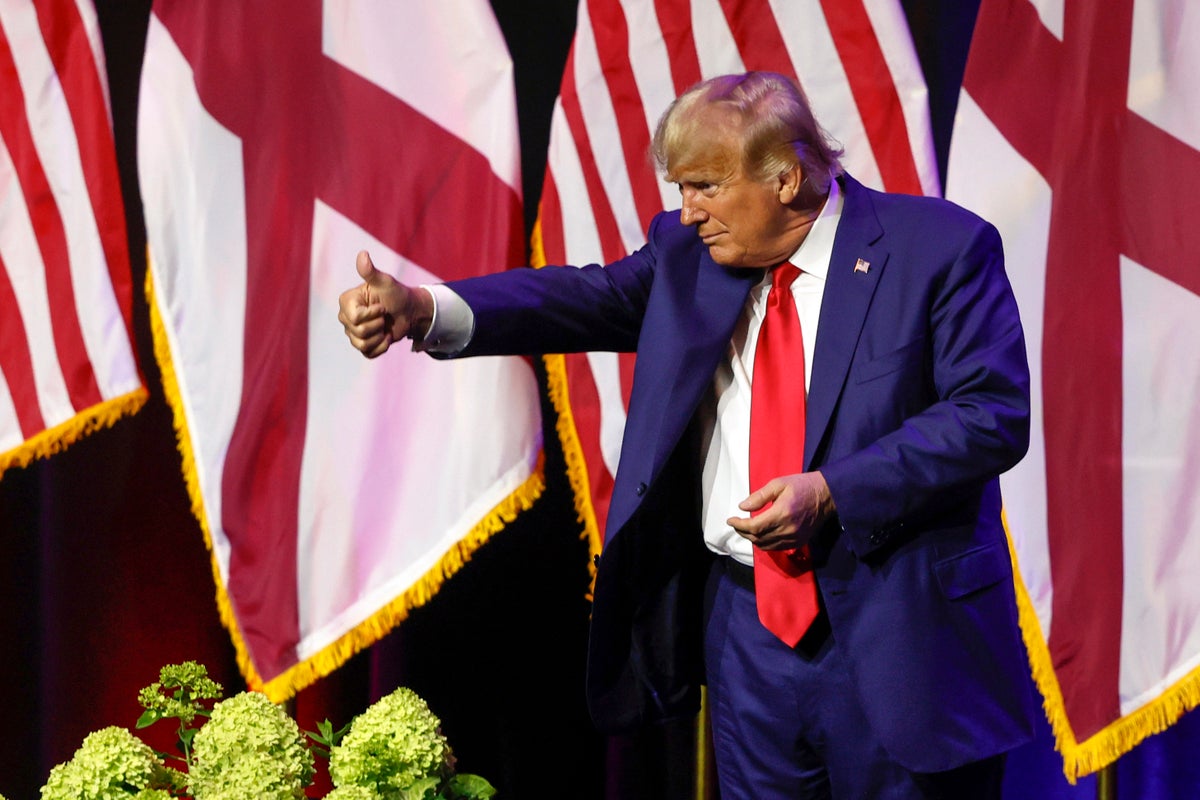
Special Counsel Jack Smith’s office accused Donald Trump of trying to “litigate this case in the media,” after the former president objected on Monday to a proposal to limit public discussion of the discovery evidence against him for allegedly conspiring to overturn the 2020 election.
"The defendant’s principal objection to it—as defense counsel stated publicly yesterday, and in conference with Government counsel—is that it would not permit the defendant or his counsel to publicly disseminate, and publicise in the media, various materials obtained from the Government in discovery," the the office wrote in a Monday night filing.
“But there is no right to publicly release discovery material, because the discovery process is designed to ensure a fair process before the Court, not to provide the defendant an opportunity to improperly press his case in the court of public opinion."
The filing came just hours after Mr Trump’s legal team asked the judge overseeing the criminal case for permission to use a large swath of discovery materials while he campaigns for the Republican nomination in next year’s presidential election.
In a 13-page response to the government’s original motion for a protective order barring him from disclosing any of the materials that will be turned over by prosecutors as part of the pre-trial discovery process before he is tried on charges of conspiracy and obstruction of an official proceeding, Mr Trump’s defence team claimed that the standard protective order requested by prosecutors would mean Judge Tanya Chutkan would be a “censor” who would impose “content-based restrictions” on the ex-president’s “political speech”.
Prosecutors, citing Mr Trump’s penchant for “public statements on social media regarding witnesses, judges, attorneys, and others associated with legal matters pending against him,” had asked Judge Chutkan to impose an order barring the former president from disclosing discovery materials “directly or indirectly to any person or entity other than persons employed to assist in the defense, persons who are interviewed as potential witnesses, counsel for potential witnesses, and other persons to whom the Court may authorize disclosure”.
The government also cited social media posts made by the ex-president on his Truth Social platform, including one recent social media post in which he appeared to threaten to “come after” anyone he believes to have been “after” him.
In a more recent post on Monday, the ex-president also claimed that he “shouldn’t have a protective order placed on [him] because it would impinge upon [his] right to FREE SPEECH”.
Mr Trump’s attorneys largely echoed this claim in their court filing, and said the government had to demonstrate a “compelling reason” with “no narrower alternative” before the court could impose the restrictions requested by prosecutors.
While the ex-president’s legal team did concede that the government does have some interest in “restricting some of the documents it must produce,” including secret grand jury materials and documents pertaining to the identities of witnesses, they said those needs did not require a “blanket gag order over all documents produced by the government”.
They also complained that Special Counsel Jack Smith and his team did not explain why it would be insufficient to impose restrictions only on materials deemed “sensitive” by the government, and asked Judge Chutkan to impose an order which only restricts “sensitive” materials from use by Mr Trump in his political campaign.
Additionally, the ex-president’s attorneys asked Judge Chutkan to impose an order which allows them to “bring on ... volunteer attorneys or others without paid employment arrangements” as Mr Trump prepares for trial, and argued that the government “cannot preclude the assistance” of such volunteers or require Mr Trump to ask permission before allowing them access to discovery materials.
“Such a limitation or requirement would unduly burden President Trump and impede the efficient preparation of his defense. Indeed, the defense cannot predict its future needs for the case, especially for a case of this magnitude and complexity,” they said.
They did add, however, that they would not object to an order restricting those volunteers from accessing materials deemed “sensitive”.







